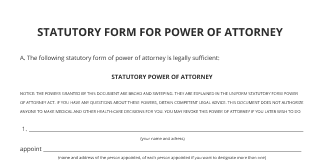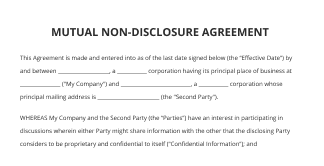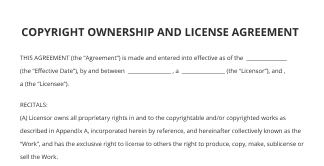Sign Privacy Policy Made Easy
Improve your document workflow with airSlate SignNow
Agile eSignature workflows
Fast visibility into document status
Simple and fast integration set up
Sign privacy policy on any device
Advanced Audit Trail
Rigorous protection requirements
See airSlate SignNow eSignatures in action
airSlate SignNow solutions for better efficiency
Our user reviews speak for themselves






Why choose airSlate SignNow
-
Free 7-day trial. Choose the plan you need and try it risk-free.
-
Honest pricing for full-featured plans. airSlate SignNow offers subscription plans with no overages or hidden fees at renewal.
-
Enterprise-grade security. airSlate SignNow helps you comply with global security standards.

Your step-by-step guide — sign privacy policy
Adopting airSlate SignNow’s eSignature any business can accelerate signature workflows and eSign in real-time, supplying a greater experience to clients and workers. Use sign Privacy Policy in a few simple actions. Our mobile-first apps make working on the go feasible, even while off the internet! eSign signNows from any place in the world and close up tasks in no time.
Follow the stepwise guide for using sign Privacy Policy:
- Sign in to your airSlate SignNow profile.
- Find your needed form within your folders or import a new one.
- Access the template and edit content using the Tools list.
- Drag & drop fillable boxes, add text and sign it.
- Add several signers using their emails and set up the signing sequence.
- Indicate which individuals will get an executed copy.
- Use Advanced Options to limit access to the record and set an expiry date.
- Tap Save and Close when finished.
Additionally, there are more extended capabilities available for sign Privacy Policy. List users to your collaborative work enviroment, view teams, and track collaboration. Millions of consumers all over the US and Europe agree that a system that brings people together in a single cohesive digital location, is the thing that companies need to keep workflows performing smoothly. The airSlate SignNow REST API allows you to integrate eSignatures into your application, internet site, CRM or cloud. Check out airSlate SignNow and enjoy faster, smoother and overall more effective eSignature workflows!
How it works
airSlate SignNow features that users love
See exceptional results sign Privacy Policy made easy
Get legally-binding signatures now!
FAQs
-
How do you write a privacy policy?
Write your Privacy Policy in plain, easy-to-understand language. Update your policy regularly to reflect changes in the law, in your business, or within your protocols. Notify users of these updates, and include the effective date with your policy. Be transparent and remain true to your commitment to user privacy. -
Do I need a lawyer to write a privacy policy?
Short answer, no. You don't need a lawyer to write your Terms of Use & Privacy Policy for your website and/or app. ... As previously stated, it's not necessary to have a lawyer draft these documents so if you're comfortable with personally drafting them, then by all means, stop reading here. -
How do I write a small business privacy policy?
Never ask for more information than is necessary. If you do not require a customer's date of birth to provide services, do not ask for it. ... Write in plain language. ... Customize to your business. ... Implement good information practices. -
What does a privacy policy need to include?
A Privacy Policy is a legal agreement that explains what kinds of personal information you gather from website visitors, how you use this information, and how you keep it safe. Examples of personal information might include: Names. -
What is required to be in a privacy notice?
Your notice must accurately describe how you collect, disclose, and protect NPI about consumers and customers, including former customers. Your notice must include, where it applies to you, the following information: Categories of information collected. -
Is it a legal requirement to have a privacy policy on a website?
There is no general federal or state law that requires a company to have a privacy policy in all circumstances. But there are several laws that require one in some circumstances. ... The privacy policy must also provide information on the operator's online tracking practices. -
Can you write your own privacy policy?
And do not write your own privacy policy or use a free one from the Internet under any circumstances. With very limited exceptions, privacy policies are not only required by law in the U.S., but they are required to have specific disclosures. -
Do you need a lawyer to write a privacy policy?
Short answer, no. You don't need a lawyer to write your Terms of Use & Privacy Policy for your website and/or app. ... As previously stated, it's not necessary to have a lawyer draft these documents so if you're comfortable with personally drafting them, then by all means, stop reading here. -
How do I add a privacy policy to my Facebook page?
Click into the NOTES page and then click on ADD NOTE. Enter Your Company Name \u2013 Privacy Policy as the title and copy and paste the privacy policy into the 'write something' area. Then copy in the whole of the Privacy Policy in to the \u201cwrite something\u201d area. -
What is a privacy policy on Facebook?
A Privacy Policy is a legal statement that specifies what the owner of a business will and will not do with the personal data collected from its users. When you use the APIs from Facebook, you're requesting personal information from users through Facebook. -
Can anyone write terms and conditions?
How to Write Terms & Conditions. ... The Terms & Conditions act as a contract between you and your users so you can control liability, manage use, protect your intellectual property, and enforce rules. While it's not legally required in any jurisdiction, it can make managing your website or app much easier. -
How do you write terms and conditions for payment?
Use of simple, polite, and straightforward language. Mentioning the complete details of the firm and the client. Complete details of the product or service, including taxes or discounts. The reference number or invoice number. Mentioning the payment mode. -
Do I need terms and conditions?
While most websites seem to have one, there's actually no legal requirement for defining terms and conditions. However, if you are gathering user's personal data, you are required to have a stated Privacy Policy. Terms and Conditions may not be required by law, but it's still a smart thing to include. -
Where do I put privacy policy in Wordpress?
Suggested clip How to Add a Privacy Policy in WordPress - YouTubeYouTubeStart of suggested clipEnd of suggested clip How to Add a Privacy Policy in WordPress - YouTube -
How do I set up a privacy policy?
Log in to your WP Dashboard. In the left menu, select \u201cPages\u201d and \u201cAdd new.\u201d Title the page \u201cPrivacy Policy\u201d and paste your Policy's text in the text box. Click Publish to make your page go live.












































